Prizes, appointments and grants
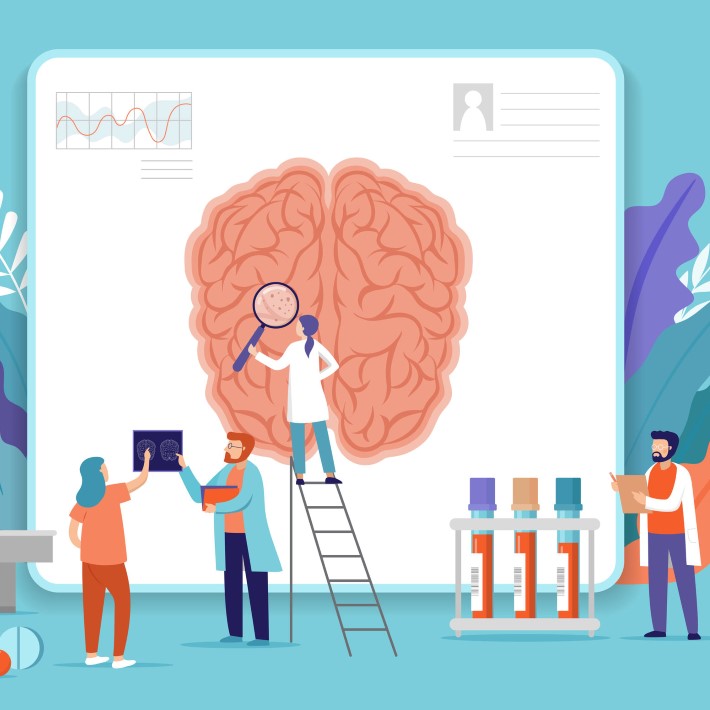&width=710&height=710)
Marie Curie Doctoral Network grant for IgG4 autoimmune diseases consortium
The IgG4-TREAT consortium has won a Marie Sklodowska-Curie Doctoral Network grant from the European Commission. From the LUMC, Human Genetics researcher Maartje Huijbers is involved.
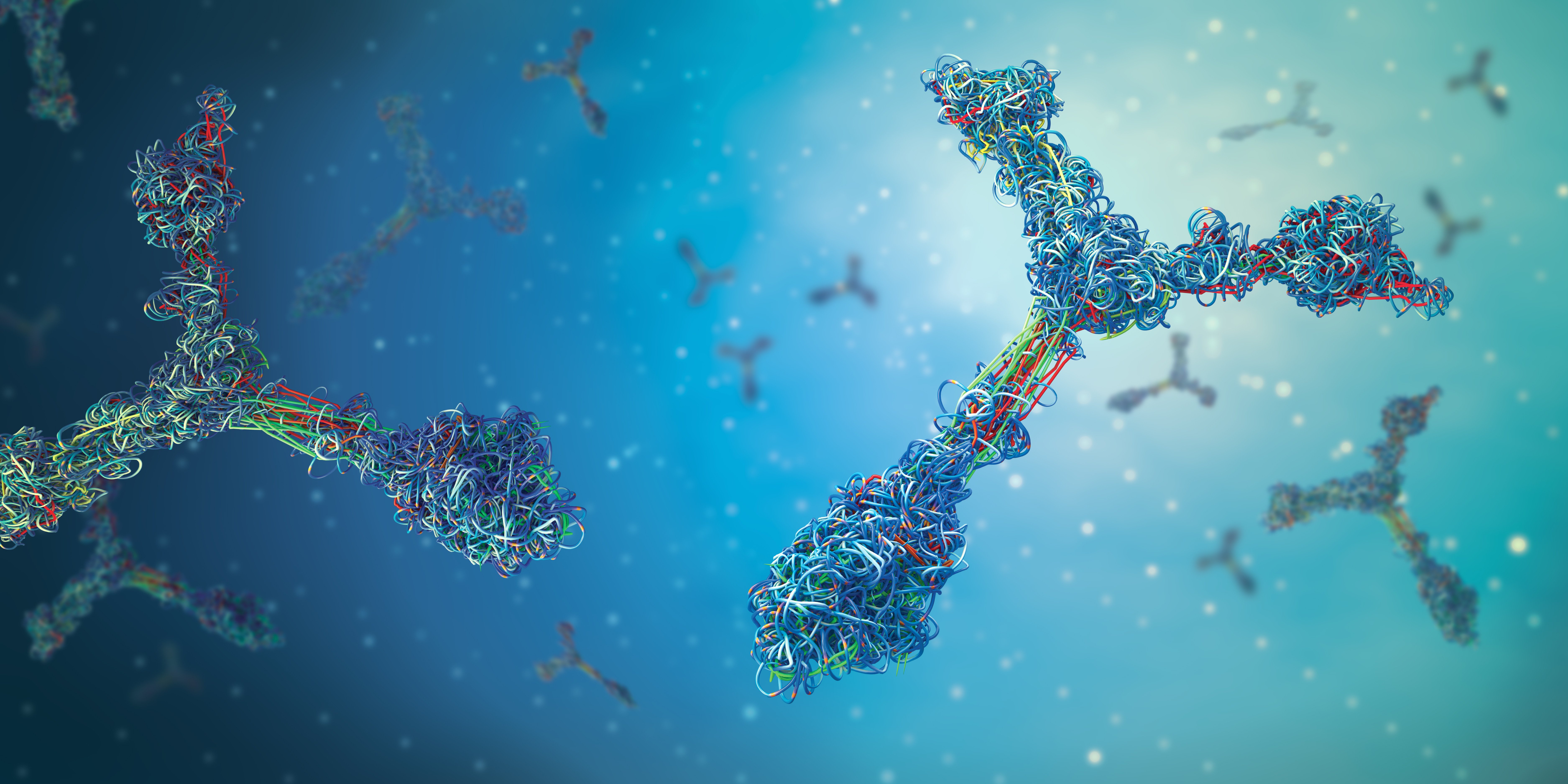 The IgG4-TREAT consortium aims to map the cause and effects of autoimmune diseases, mainly involving autoantibodies of the IgG4 subclass. These autoimmune diseases are very diverse and lead, for example, to skin blistering, muscle weakness, memory impairment or coagulation disorder. IgG4 is a special antibody because it is considered anti-inflammatory and has unique properties compared to other antibodies.
The IgG4-TREAT consortium aims to map the cause and effects of autoimmune diseases, mainly involving autoantibodies of the IgG4 subclass. These autoimmune diseases are very diverse and lead, for example, to skin blistering, muscle weakness, memory impairment or coagulation disorder. IgG4 is a special antibody because it is considered anti-inflammatory and has unique properties compared to other antibodies.
The aim of this consortium is to join forces to study the cause of these rare IgG4 autoimmune diseases and develop a new model and treatment. The LUMC will, among other things, make this new IgG4 model and test the new treatment. The grant will allow 1 PhD student to be appointed to this project.
Article on weighing multiple outcomes with AI receives Best Paper Award
At the International Conference on Evolutionary Multi-Criterion Optimisation in Leiden, a paper written by researchers from the Department of Radiotherapy and CWI has received the Best Paper Award.
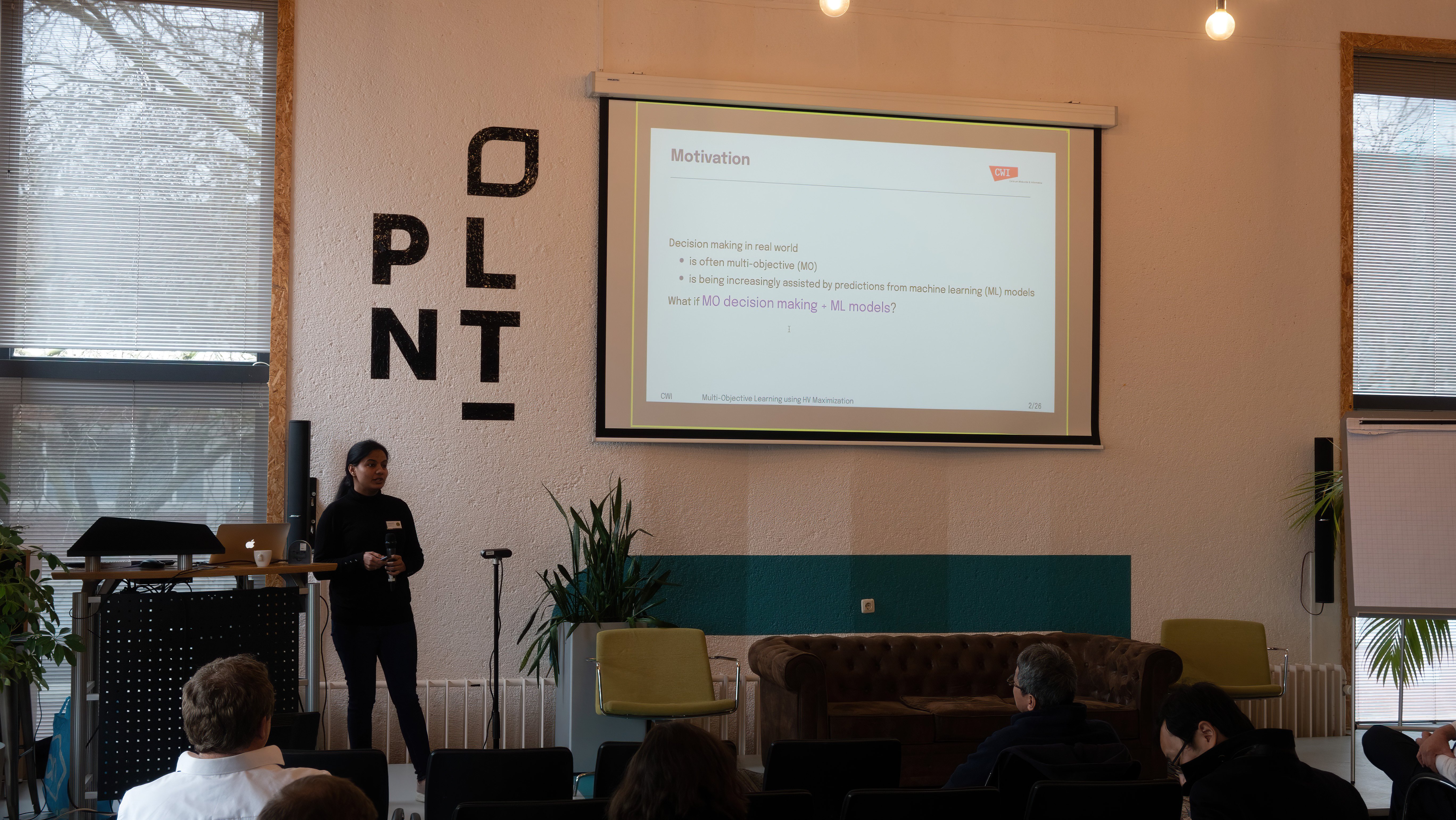 The paper is the product of a collaboration between the Department of Radiotherapy and the Centre for Mathematics & Computer Science (CWI). The paper presents a new way of doing machine learning so that a trained model gives not just 1 outcome, but multiple outcomes simultaneously that represent the best trade-offs between different aspects that are all equally important.
The paper is the product of a collaboration between the Department of Radiotherapy and the Centre for Mathematics & Computer Science (CWI). The paper presents a new way of doing machine learning so that a trained model gives not just 1 outcome, but multiple outcomes simultaneously that represent the best trade-offs between different aspects that are all equally important.
This allows the user to study the different outcomes and choose which outcome best suits a specific situation. For example, considering different treatment options that balance effectiveness and toxicity. The next step is to use this method for deep-learning-based deformable medical image registration (anatomically correct deformation of medical images to best compare them).
Leiden pharmacists receive KNMP Care Innovation Award 2023
A better exchange of information on the medication use of patients with cancer between hospitals and public pharmacies. That was the aim of the Leiden Academic Network of Pharmacists (LANA). For this clever innovation, LANA, which was founded from the LUMC, received the KNMP Care Innovation Award 2023.
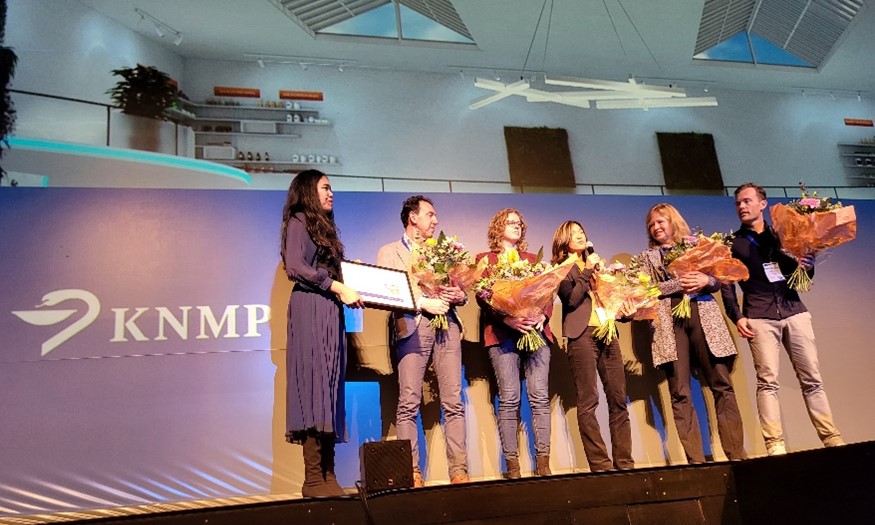 The exchange of info regarding drug use of oncology patients between hospitals and community pharmacies is not optimal. A working group from LANA therefore came up with a system that would make this information exchange possible.
The exchange of info regarding drug use of oncology patients between hospitals and community pharmacies is not optimal. A working group from LANA therefore came up with a system that would make this information exchange possible.
The initiators of the innovation, community pharmacist Wietske Overmars (Roelofarendsveen), community pharmacist Henk-Frans Kwint (Leiden) and hospital pharmacist Kim Gombert-Handoko (Leiden), were awarded a cash prize of ten thousand euros by KNMP board member Naomi Jessurun. The KNMP Care Innovation Award has been presented by the professional and branch organisation for pharmacists since 2011 and is an incentive for innovative pharmacists.
500,000 euro Health~Holland grant for new initiative against colon cancer
With a grant from Health~Holland, LUMC's Center for Proteomics and Metabolomics (CPM) will research glycans, complex sugars, on colon cancer cells. The aim is to develop diagnostic and therapeutic antibodies against these glycans.
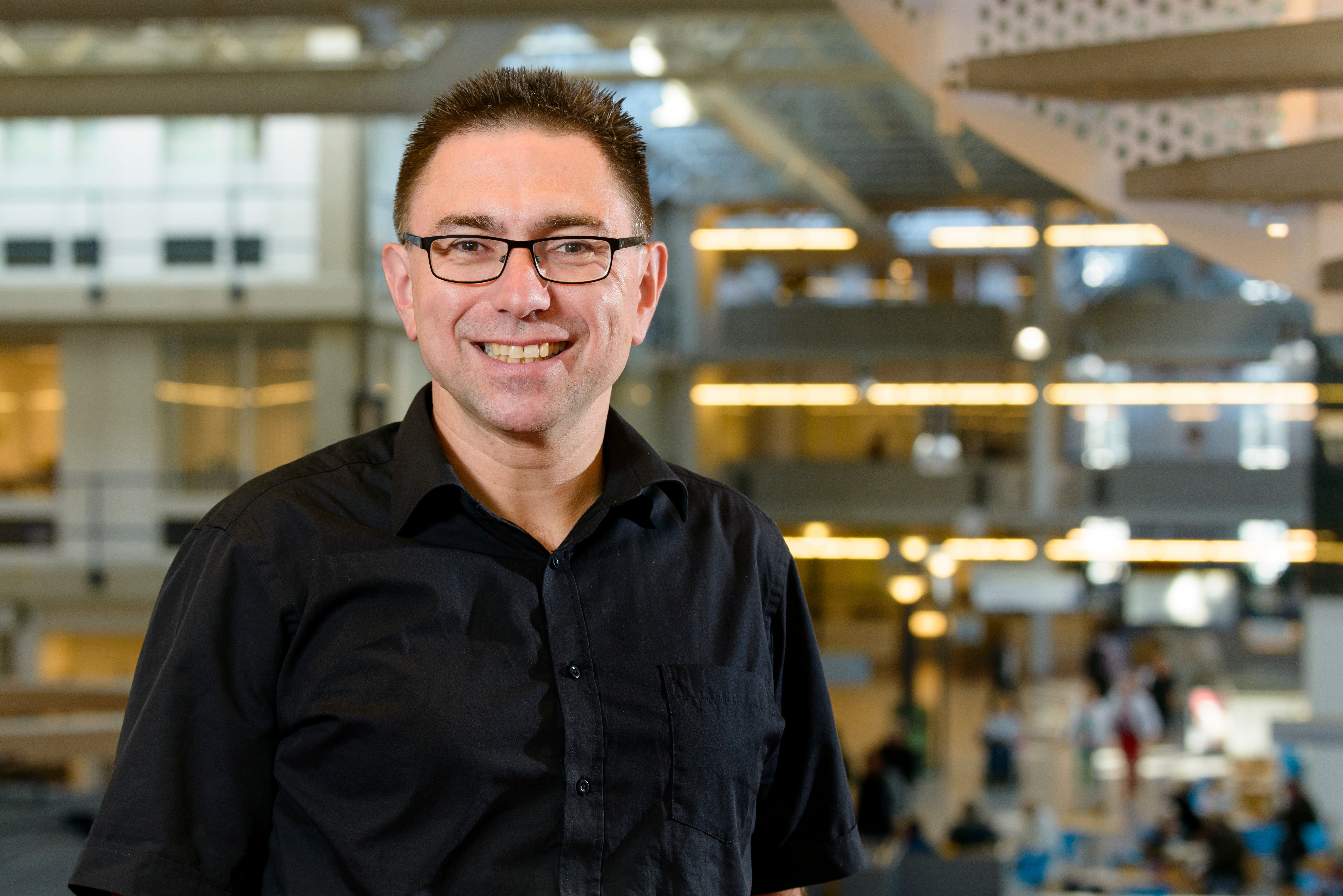 The CPM, led by Manfred Wuhrer, is doing this in collaboration with Tacalyx, a private biotech company. The Tacalyx team will use the glycan structures identified by CPM to develop new diagnostic and therapeutic antibodies. "Moreover, following our unique insights into the so-called O-glycans of colon cancer, we plan to extend our analyses to other cancers to exploit the full potential of glycans as antibody targets," Wuhrer says.
The CPM, led by Manfred Wuhrer, is doing this in collaboration with Tacalyx, a private biotech company. The Tacalyx team will use the glycan structures identified by CPM to develop new diagnostic and therapeutic antibodies. "Moreover, following our unique insights into the so-called O-glycans of colon cancer, we plan to extend our analyses to other cancers to exploit the full potential of glycans as antibody targets," Wuhrer says.
Wuhrer's group is conducting research on glycans that occur specifically on tumours and not on healthy tissue. This is expected to enable higher-dose, longer-lasting treatment with fewer side effects.
Marie Curie Doctoral Network grant to treat ultra rare brain disorders
The Medicine made to Measure consortium aims to tailor genetic treatments for patients with extremely rare brain disorders who are currently unable to benefit from medical breakthroughs. From the LUMC, Willeke van Roon and Annemieke Aartsma-Rus are involved.
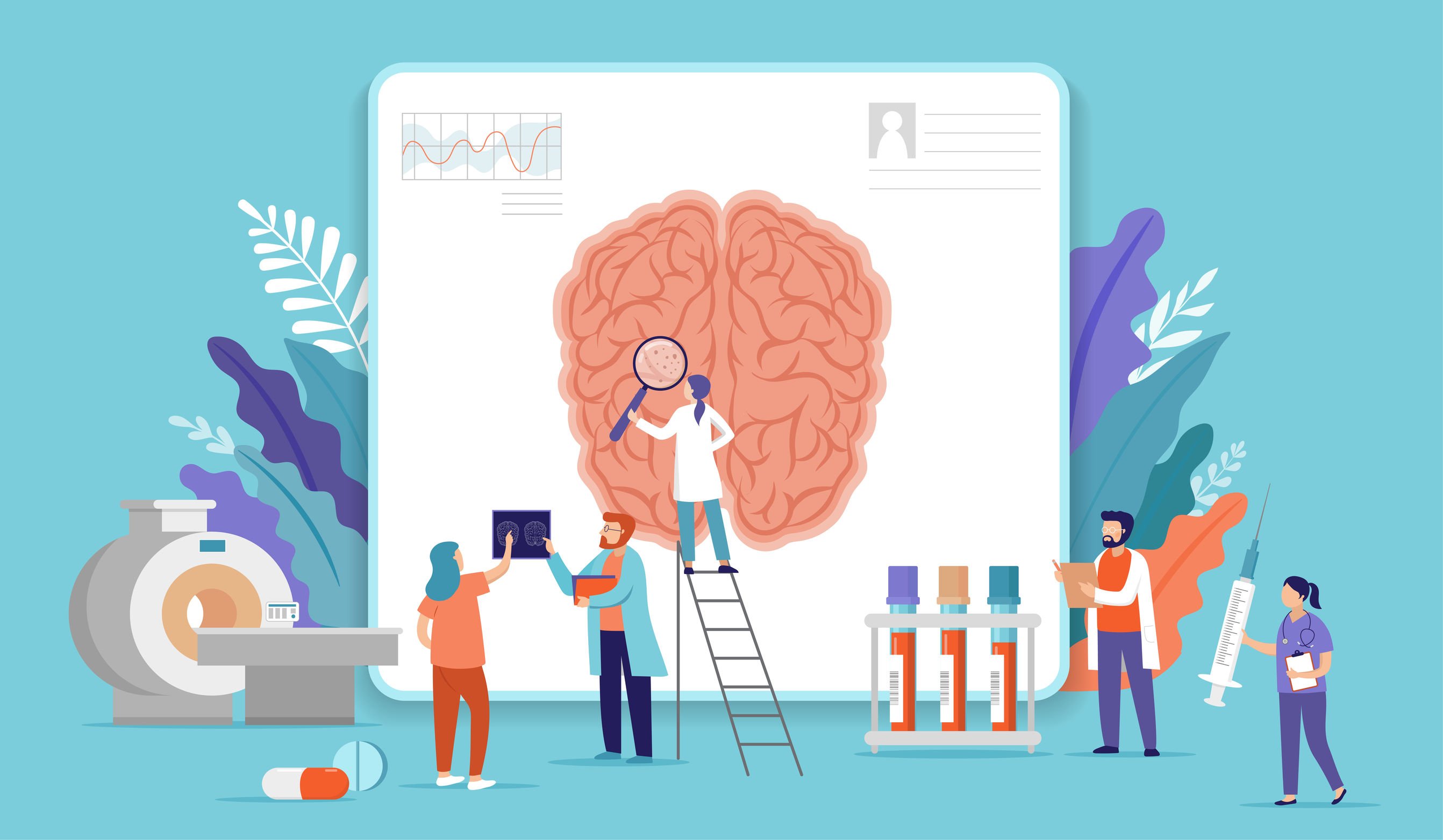 Currently, 95% of rare neurological disorders lack disease-modifying treatment options. A remarkable number of disorders do not benefit from the rapid development in genetic treatments. This is not because these treatments are inadequate, but partly because of its rarity and the huge number of individual disorders.
Currently, 95% of rare neurological disorders lack disease-modifying treatment options. A remarkable number of disorders do not benefit from the rapid development in genetic treatments. This is not because these treatments are inadequate, but partly because of its rarity and the huge number of individual disorders.
Recently, N1C delivered a proof-of-concept that the development of a mutation-specific RNA therapy is possible within 18 months. This time-critical development is essential when it comes to severe and life-threatening diseases, which are the main focus of this project. Specifically, the researchers aim to develop core modules of a novel out-of-the-box development pathway for individual patients with rare mutations. This grant will allow 2 PhD students to be appointed on this project.